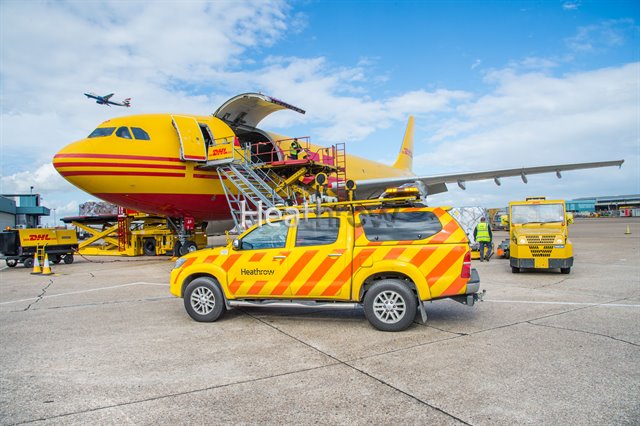DHL Express, a global leader in logistics and express delivery services, is in the midst of a significant fleet upgrade as part of its Strategy 2025. This ambitious plan focuses on leveraging e-commerce as a key growth driver and enhancing efficiency to boost profitability. Central to this strategy is the acquisition of new Boeing 777 Freighters, renowned for their fuel efficiency and extended range capabilities. However, a new regulatory challenge in Belgium threatens to disrupt these plans, putting DHL at a crossroads between modernization and compliance.
DHL’s investment in the Boeing 777 Freighter is a testament to its commitment to innovation and sustainability. With a payload capacity of 102 tons and a range of 9,200 kilometers, the Boeing 777F is unmatched among twin-engine freighter aircraft. These planes are not only more fuel-efficient but also significantly reduce CO2 emissions by 18 percent compared to older models. For DHL, these advancements are crucial as the company manages the logistics of millions of parcels daily, offering customers the ability to track their shipments globally through dhl tracking services. This technology ensures transparency and reliability, making DHL a preferred choice for e-commerce businesses and consumers alike.
The first of six new Boeing 777F aircraft for 2020 landed at DHL’s hub at Cincinnati/Northern Kentucky International Airport. By the end of 2021, the company had incorporated all 14 of these state-of-the-art freighters into its fleet, enhancing its intercontinental network and supporting its goal of reducing its carbon footprint. John Pearson, CEO of DHL Express, highlighted the importance of these new aircraft, stating, “With the modernization of our intercontinental fleet, we can simultaneously enhance our proven ability to meet growing demand, improve our environmental footprint, and deliver best quality service to our customers.”
However, DHL’s fleet modernization faced a significant obstacle in Belgium, where in early 2024, the federal government proposed a night ban on Boeing 777 operations at Brussels Zaventem Airport. This move primarily impacts DHL, the airport’s largest cargo airline, which relies heavily on the Boeing 777 for its operations. The Belgian government favors older aircraft like the Airbus A300, despite these being generally louder and less efficient environmentally.
The proposed regulation has not yet come into effect, with DHL Public Affairs Director Lorenzo Van de Pol indicating that the airline has not been officially notified. The Flemish government invoked a Conflict of Interest in early 2024, delaying any decision from the federal government for 60 days. This regulatory uncertainty has raised concerns within DHL and the broader logistics community.
Belgium’s complex regional structure adds another layer of complexity to the issue. Brussels Airport is located in Flanders, despite primarily serving the capital, Brussels. This geographical nuance plays into the ongoing debate over the noise regulations and their enforcement.
The Boeing 777 is generally louder than the Airbus A300 during takeoff due to its larger size. At Brussels Airport, nighttime noise restrictions set the threshold at a quota count (QC) of 8. The Boeing 777 typically scores around 10.7, while the A300 often falls below this limit. To comply with noise regulations, DHL has operated the 777 at a reduced takeoff weight, ensuring it meets the required QC.
The potential ban on the Boeing 777 at night is driven by the Belgian Minister for Mobility, Georges Gilkinet, who argues that the existing exception allowing DHL to operate the aircraft at night is “illegal.” Flemish Minister Ben Weyts countered, emphasizing that the Boeing 777 is crucial for DHL’s operations and that replacing it with the A300 would increase noise pollution by up to 60 percent.
DHL argues that the Boeing 777 is the most modern and quietest widebody cargo aircraft available. Van de Pol stressed, “If the triple seven were to be banned at night in Brussels, we would be forced to use a different aircraft that would be louder than the triple seven. There is nothing flying today that is better, that is more noise efficient than the 777.”As DHL navigates this regulatory challenge, the outcome will have significant implications for its Strategy 2025 goals. Balancing the need for modernization and efficiency with regulatory compliance will be a test of DHL’s ability to adapt and continue leading the express logistics industry. As the decision deadline approaches in late 2024, DHL and the Belgian government remain at an impasse, with the future of nighttime logistics operations at Brussels Zaventem Airport hanging in the balance.


